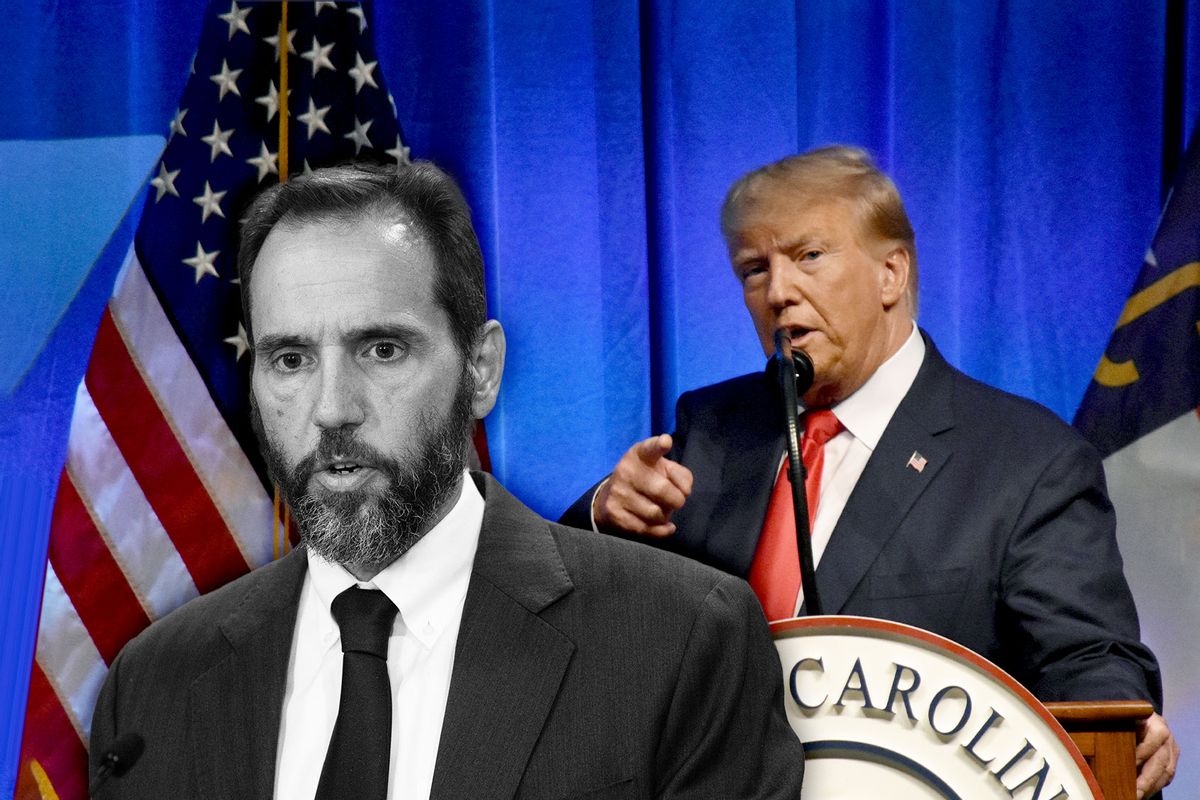
Special counsel Jack Smith’s hypotheticals in recent court filings have caught the eye of legal analysts who think he may be telegraphing “seriously scandalous Trump crimes,” according to The Daily Beast’s Jose Pagliery.
Smith’s team in an 82-page filing over the weekend warned an appellate court against granting former President Donald Trump’s claim that he is immune from prosecution because his post-election crusade was an official part of his presidential duties.
“That approach would grant immunity from criminal prosecution to a President who accepts a bribe in exchange for directing a lucrative government contract to the payer; a President who instructs the FBI Director to plant incriminating evidence on a political enemy; a President who orders the National Guard to murder his most prominent critics; or a President who sells nuclear secrets to a foreign adversary,” the filing said.
“In each of these scenarios, the president could assert that he was simply executing the laws; or communicating with the Department of Justice; or discharging his powers as commander-in-chief; or engaging in foreign diplomacy,” the special counsel’s team argued.
Prosecutors used similar hypotheticals in a filing to U.S. District Judge Tanya Chutkan earlier this year, arguing against Trump’s immunity claim.
Smith’s team warned over the weekend that Trump’s argument is “sobering.”
“In his view, a court should treat a President’s criminal conduct as immune from prosecution as long as it takes the form of correspondence with a state official about a matter in which there is a federal interest, a meeting with a member of the executive branch, or a statement on a matter of public concern,” they wrote.
Legal experts have highlighted the strange examples found in Smith’s filings.
Former federal prosecutor Renato Mariotti called attention to the part that warns against immunity for a president “who instructs the FBI Director to plant incriminating evidence on a political enemy [or] a president who orders the National Guard to murder his most prominent critics.”
“Interesting choice of hypotheticals…” replied conservative lawyer and frequent Trump critic George Conway. “It took quite an imagination,” he quipped later.
Trump’s lawyers have complained about the use of hypotheticals.
“Ignoring actual lessons from history, the government provides a list of lurid hypotheticals that have never happened—including treason and murder,” Trump’s legal team wrote in an October 26 filing.
Trump’s lawyers sought to draw a distinction between the hypothetical and Trump’s actions after the election, claiming he was acting in his official capacity when he sought to overturn President Joe Biden’s win.
But the attorneys “also cornered themselves — making clear that if Trump actually did any of Smith’s ‘lurid’ hypotheticals, there’s no way his official position could save him,” Pagliery wrote on Wednesday.
“Some or all of these hypotheticals, depending on the facts, would likely involve purely private conduct, rendering them irrelevant here,” Trump’s lawyers wrote.
The D.C. Circuit Court of Appeals is expected to hear oral arguments on Trump’s immunity claim on Jan. 9 after it was rejected by Chutkan. The Supreme Court declined Smith’s request to fast-track the matter before the appeals court rules, though it may still take the case if the appellate court ruling is ultimately appealed.
Want a daily wrap-up of all the news and commentary Salon has to offer? Subscribe to our morning newsletter, Crash Course.
Legal experts widely expect the court to uphold Chutkan’s ruling.
“Whatever immunities a sitting president may enjoy, the United States has only one chief executive at a time, and that position does not confer a lifelong ‘get-out-of-jail-free’ pass. Former presidents enjoy no special conditions on their federal criminal liability. Defendant may be subject to federal investigation, indictment, prosecution, conviction and punishment for any criminal acts undertaken while in office,” Chutkan wrote last month.
“Defendant’s four-year service as commander in chief, she added, “did not bestow on him the divine right of kings to evade the criminal accountability that governs his fellow citizens.”
